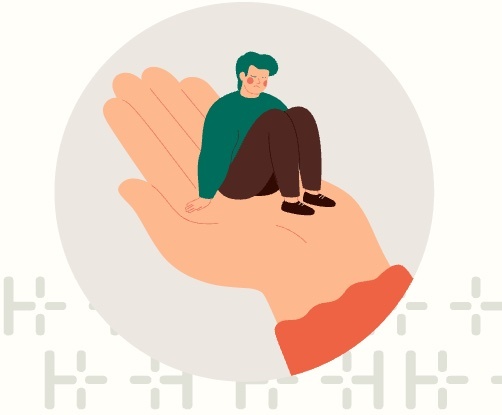Experiential Therapy
Experiential therapy is a journey of self-discovery, offering hands-on experiences that help you uncover your strengths and find new ways to thrive.

What you’ll gain from Experiential Therapy
Self-Awareness
Engage in activities that provide deeper insights into your emotions, behaviors, and thought patterns.
Communication Skills
Practice expressing yourself more effectively and understanding others on a deeper level.
Emotional Regulation
Learn how to manage and navigate your emotions in a healthier and more constructive way.
Coping Mechanisms
Acquire new, healthy ways to cope with stress, anxiety, and challenging situations.
What is Experiential Therapy?
Experiential therapy is a dynamic approach to counseling that encourages individuals to actively participate in hands-on experiences. Unlike traditional talk therapy, experiential therapy leverages activities, role-playing, and creative exercises to facilitate emotional expression and self-discovery. By immersing themselves in these experiences, individuals can gain a deeper understanding of their emotions, behaviors, and thought patterns. This approach is particularly effective for those who may find it challenging to express themselves verbally or prefer a more interactive and engaging therapeutic process.
Experiential therapy also provides a safe space for clients to practice new behaviors, explore alternative ways of coping with challenges, and develop healthier interpersonal skills. Ultimately, this immersive and transformative approach empowers individuals to integrate their newfound insights into their daily lives, leading to positive and lasting change.

Speak Now With A Care Coordinator
In-Network Therapists, With a Wide Expertise
Our extensive network of seasoned, licensed, accredited, and highly empathetic mental health clinicians specialize in easing a wide spectrum of concerns, including:
Clinical Conditions
- OCD
- Anxiety
- Depression
- ADHD
- Bipolar disorder
- Chronic insomnia
- Chronic pain
- Panic
- Personality disorders
- Phobias
- Trauma & PTSD
General Topics
- Relationships
- Parenting support
- Burnout
- Life transitions
- Grief & loss
- Self-esteem
- Body acceptance
- Cultural identity
- Racial trauma
- Childhood trauma
- Finding purpose

Our providers are experts in Experiential Therapy

Trusted counselors, 5-star results

How do you know if you need therapy?
Therapy is right for everyone. Therapy can help you improve your relationships with your family, friends, and self. Taking care of your mental health is a sign of strength, and seeking to better oneself is an empowering choice.

Frequently Asked Questions
Who is Headlight for?
Headlight is for everyone. Taking care of your mental health is a sign of strength, and choosing to better oneself is an empowering decision. We provide mental health services to those seeking a bright path forward.
What is therapy?
Therapy offers a safe and confidential space for individuals to explore their thoughts, emotions, and experiences. During therapy sessions, your Headlight therapist will actively listen and provide guidance and insights to help you better understand yourself, your relationships, and your challenges. Talk therapy can address a variety of mental health concerns, from anxiety and depression to trauma and relationship issues. Headlight’s clinicians are experienced in various therapeutic approaches and techniques and offer in-person or virtual sessions.
What is the difference between therapy and psychiatry?
Therapy, often provided by psychologists, social workers, or counselors, involves talking through emotional and psychological challenges to gain insight and develop coping strategies. Whereas, psychiatry, typically led by medical doctors, focuses on the diagnosis and treatment of mental health issues using medication alongside therapy when necessary. While therapy emphasizes conversation and behavioral strategies, psychiatry integrates medication management to address biochemical imbalances in mental health conditions.
Why is it so important to find the right therapist?
Finding the right therapist is so important as it establishes a foundation of trust, creating a safe space for open communication. A well-matched therapist can better understand your individual needs, ensuring personalized support and enhancing the effectiveness of the therapeutic process.
What services do you offer?
Headlight services include therapy, medication management, and Esketamine (Spravato) sessions.

More than 50% of Americans struggle with mental health.
Headlight is now collaborating with health plans and companies to make therapy more accessible and affordable. Speak to a Care Coordinator today.













